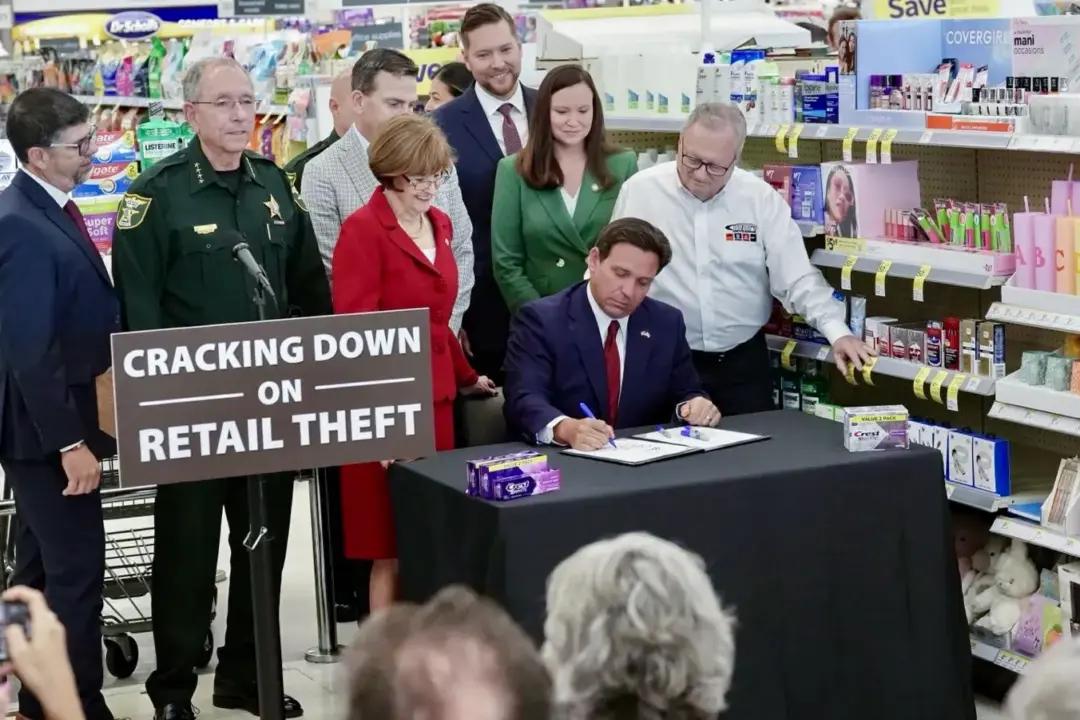As businesses across the country flee from areas where rampant theft makes operating difficult, Florida is making changes aimed at preventing theft in the state.
Standing at a lectern in a Walgreens pharmacy in Stuart, Florida on April 9, Gov. Ron DeSantis spoke about why he was happy to sign HB 549 into law. Sent to him from the Republican-controlled Florida Legislature, the new law increases penalties for retail theft and for stealing just-delivered packages from homes, a crime known as “porch piracy.”




